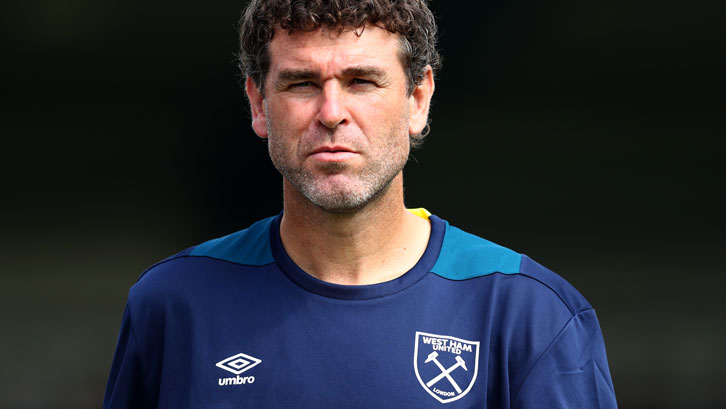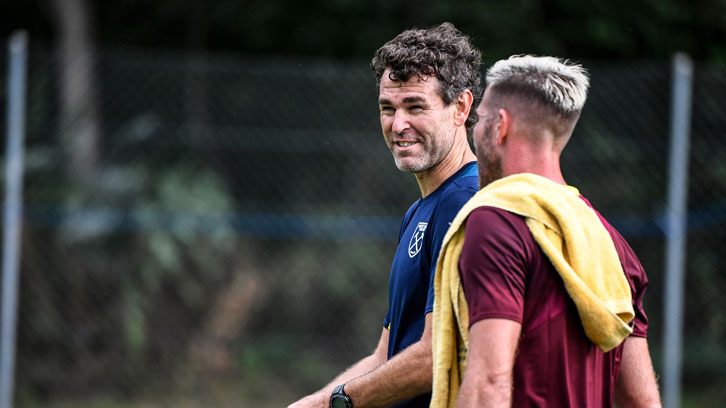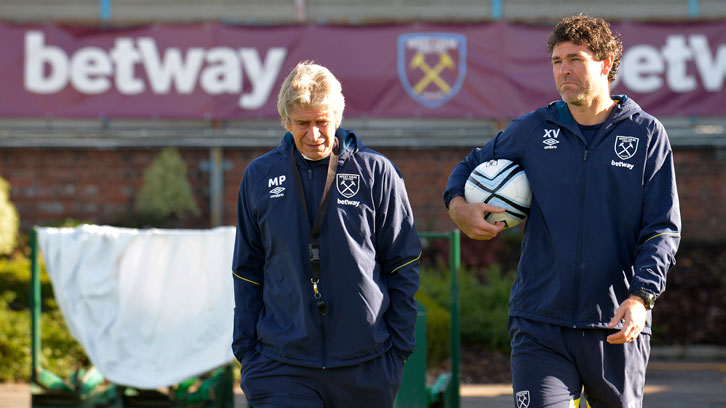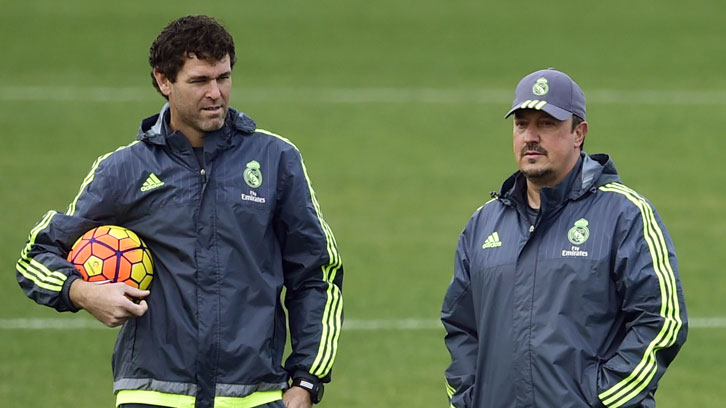
Goalkeeper coach Xavi Valero is passing on the experience of working with some of the world’s finest glovemen...
When I was young, growing up in Spain, it was always my dream to be a goalkeeper.
As a boy, I liked Andoni Zubizarreta of Barcelona and Spain. He was a very sensual, calm, classical goalkeeper who made things look so simple and easy, so I really appreciated how he control very difficult situations in the game.
I managed to play, maybe not at the highest level, but for 14 years as a professional, reaching La Liga with Murcia but mainly in the Spanish equivalent of the Championship.
When I was 33, I decided to do something else in my life, so I did my degree in social education at the National University of Distance Education while I was deciding what to do next after playing football for so many years.
Everything was geared towards teaching in different fields, but I also did my coaching badges at the same time, which gave me another way of teaching and developing young people. I had different projects and in the end I took the one which kept me in football.
I had fulfilled my childhood dreams of becoming a football player, but I had other dreams and I had the opportunity to join Liverpool as part of the coaching staff.
There was a vacancy at Anfield for a goalkeeper coach and Rafa Benitez was there at the time. I applied and I was lucky enough to get an interview and I got the job in 2007!
I had an interview with Rafa and at that moment Liverpool was at the top in England and in Europe. They had just been to the Champions League final, so it was an experience just to be selected for the interview. Then, when I was offered the job, it was a massive thing for me.
Since then, I have worked with some top goalkeepers – Jerzy Dudek, Pepe Reina, Julio Cesar, Petr Cech, Keylor Navas and now Lukasz Fabianski and Adrian.

I have been really lucky with the goalkeepers I have worked with during my career. As a coach, you can give some information to the goalkeeper which may help them to improve, but it’s much more about what they give to you in terms of being open to the process.
The solutions the goalkeepers are able to find are so amazing that, if you take them on board, then try to teach these things to other goalkeepers, it is very fulfilling.
The game belongs to the players. You can help them and prepare them but, once they are on the pitch, they make their own decisions.
Positioning is key
When I was interviewed for my first job at Liverpool, I explained my goalkeeping philosophy.
I never think of the goalkeeper as an isolated part of the team, so I try to take a holistic approach to football.
I think the development of the goalkeeper at any age and the improvement they make comes from the integration of the goalkeeper into the whole team.
For me, the coach and the team have to understand the role of the goalkeeper, so the goalkeeper can feel part of the team. That is the main thing for me.
The key thing for me for the goalkeeper to improve his game is for him to develop a strong sense of position.
Positional play is a key aspect of the game for a goalkeeper. I firmly believe that if a goalkeeper has the ability to read a game and get into position in good time, with the game being so fast, it becomes more difficult to make mistakes because the possibilities are less.
Goalkeepers can become more reliable, which is what you want. You want goalkeepers to make the winning save, but ideally you want goalkeepers who will produce more or less the same level of performance in every game and give you what you ask them to do on the pitch.
From a strong position in every single moment in the game, you can get these responses from the goalkeeper.
So, to recap, positional play and always getting the goalkeeper involved in the team are the two key aspects of goalkeeping.

The role of the goalkeeper
Goalkeepers need to control a big space in front of him, not just the goalmouth, but the whole penalty box.
Now, the goalkeeper has so many decisions to make and can make an impact on so many different aspects of the game, you need a goalkeeper who is able to be to give responses in so many different areas – distribution, recoveries, defending the space, defending the goal, 1v1s, high balls, decision-making.
The space the goalkeeper has to defend is much bigger than he had to defend before, so technically they need to be much more complete.
Then, the positions they need to be in during the game have more variety than before. They need to be in many different positions to give the right answer to many different game situations, so the complexity of the goalkeeper’s role nowadays is huge.
So, the understanding of the game, the psychological aspects, the decision-making are key to the modern goalkeeper because of the speed of the game, the amount of space they need to defend and the number of different events they are involved in, are vital.
The Spanish influence
It has been suggested that Spanish goalkeepers came to terms with the changes to the rules of the game more quickly than others – most notably the back-pass rule, which prevents goalkeepers handling the ball from a pass from their own team, or from a throw-in.
In Spain, we have that connection with South America, but also influences coming from Europe.
Spanish football has imported goalkeepers, mainly from Argentina and some from Brazil, who give a different approach to the game to the Spanish or other European goalkeepers.
They have amazing distribution and are amazing 1v1, so they were dealing with 1v1 situations in a new way even 30 years ago, which was new in Spain.
So, I think we have taken the best from South American goalkeepers, especially how they are comfortable playing so far from the goal and supporting their defensive line no matter if they are deep or high, and being extraordinary with their feet, distributing the ball using the side-volley, which is more accurate than the drop-kick.
We also took the best European influences from England, Germany and Italy.
I think you can see Spain has been a melting pot of South American and European football in how we play football and how the goalkeepers approach their craft.

The future of goalkeeping
While we have seen big changes in the art of goalkeeping even since I stopped playing, we have a long way to go.
I think there is lots of work still to be done for the goalkeeper to be more integrated into the team, both in training sessions and in games.
Goalkeepers like Ederson at Manchester City, Marc-Andre ter Stegen at Barcelona and Pepe Reina, who I worked with at Napoli and is now at AC Milan, are showing that goalkeepers can do different things and they can affect the game much more than they did in the past.
In terms of training, as I said before, we have to focus on mastering the positional play. This is the key.
When you analyse the game, I still feel that the goalkeepers can be taken out of position because of the complexities and speed of the modern game, so goalkeepers have to try to control as much as they can by being in strong positions.
From a very young age, goalkeepers need to be coached to be able to read the game and this is the way I am trying to follow, to help them develop more tools to control the game.
The more knowledge a goalkeeper has, the quicker he can make decisions to do this.
Goalkeepers have developed the skill to play out from the back and I think the next stage is to develop the mental skills and perception of the game in the goalkeeper’s mind.
That is the next step to exploit and improve as a coach, to educate goalkeepers in that way.